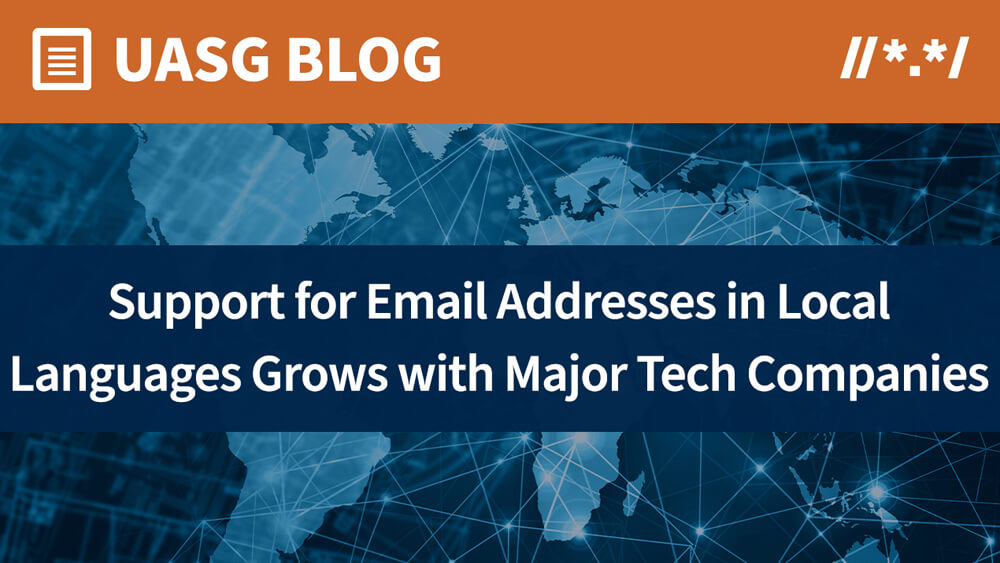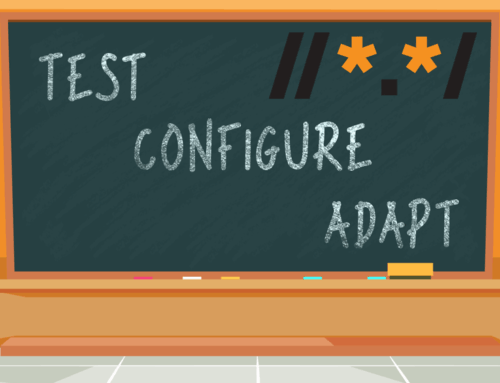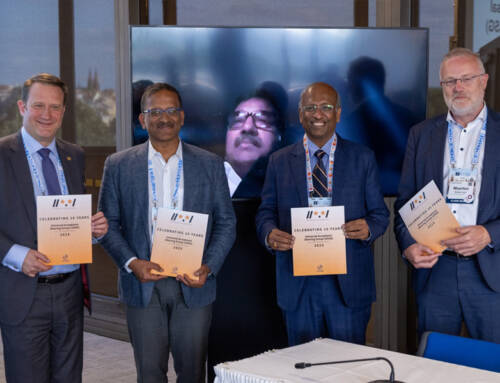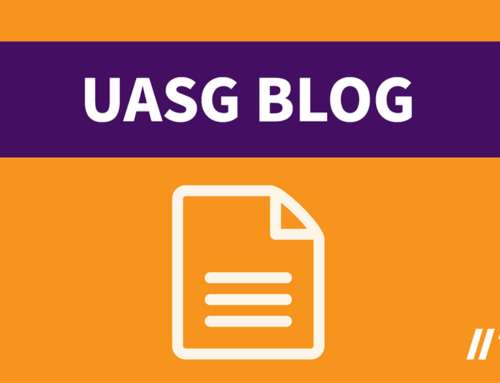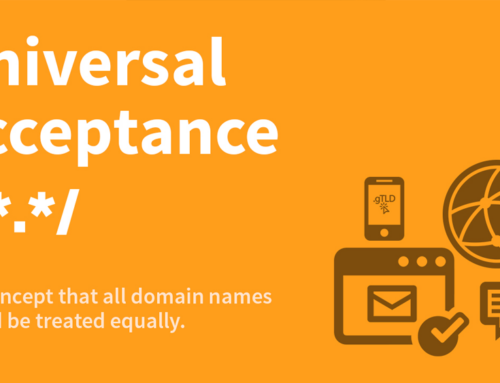By Mark Svancarek, Chair, EAI Working Group
Many people around the world are currently excluded from experiencing the full benefits of the Internet simply because they are unable to use a domain name or email address in the language or script of their choice. The majority of people around the world do not speak English as a first language, and as access to the Internet expands globally, it’s critical that email applications, devices, and systems are developed and updated to accept international email addresses and domain names (e.g.,مشرف@اختبار-سجل.مصر , .рф, etc.).
Recently, there has been increased focus on Email Address Internationalization (EAI) and Universal Acceptance (UA) from major tech companies, including an exciting update from Apple regarding the release of iOS14. With iOS14, users will be able to send and receive email using addresses in non-Latin languages, including Chinese, Japanese, Korean, Russian, Thai, and Hindi. This is a major step towards building an inclusive Internet that can work for all users.
However, Apple is not the first company to address EAI and UA – both Google and Microsoft have made commitments to allow the use of non-Latin-based characters in email addresses. In 2014, Google announced that Gmail would begin recognizing non-Latin characters in email addresses allowing users to send and receive to addresses that use them. Microsoft Office 365 did the same in 2018, and with Exchange Server 2019, they are now Phase One EAI compliant with all of their email offerings. (Phase One compliance is the ability to send and receive internationalized email addresses hosted by another provider).
It’s great to see major tech companies addressing EAI, but there is more work to be done. The Universal Acceptance Steering Group (UASG) is a community-led initiative that supports and engages in activities that promote UA and EAI in an effort to ensure that every person has the ability to navigate and communicate on the Internet using an email address chosen to best align with their interests, business, culture, language, and script.
As part of these efforts, the UASG’s EAI Working Group is tasked with bringing attention to EAI and creating resources that help developers and IT leaders address issues in their own systems. Recently, the working group has published two global email acceptance evaluations (UASG025, UASG027) and three assessments of EAI support in general tools and services (UASG021A, UASG021B, UASG021D). In addition, there have been EAI trainings held for system administrators and tutorials on how to set up email servers that support EAI.
The UASG also works to address UA and EAI around the world through its UA Ambassador program and Local Initiatives. UA Ambassadors are individual spokespersons who are passionate about promoting UA and engage with their local communities by hosting and speaking at UA events, and by disseminating UA resources. The UA Local Initiatives are more regionally focused efforts that develop UA outreach, trainings, and events, and work with identified stakeholders (developers, system administrators, government officials, etc.) in specific regions. There are currently Local Initiatives in China, CIS-Eastern Europe, India, and Thailand with additional planned for the Middle East and Turkey in 2021. More detailed information about the Local Initiatives and progress towards an #Internet4All is outlined in this recent blog post. To read about the UA Ambassadors and Local Initiatives leadership, click here.
Looking ahead, the UASG has finalized its FY21 Action Plan which outlines its priorities and projects for the next fiscal year (view it here). One of the main focuses will be developing additional UA case studies that showcase how different organizations are addressing UA in their own systems and provide best practices. This past year, ICANN org published a case study on its efforts to become UA-ready, and the UASG is currently working on ones with Internationalized Domain Name (IDN) and country code top-level domain (ccTLD) registries using the Cyrillic script. Keep an eye out for those to be published on uasg.tech soon.
The UASG is always looking for people passionate about UA to get involved. Check out a few of the ways to participate below. We hope to engage with you soon!
- Join a UA Working Group (Communications, EAI, Local Initiatives, Measurement, Technology).
- Follow the UASG on social media (Twitter, Facebook, LinkedIn).
- View the UASG FY21 Action Plan.
- Check to see if your mail server is EAI-compliant.
- More information and resources.

